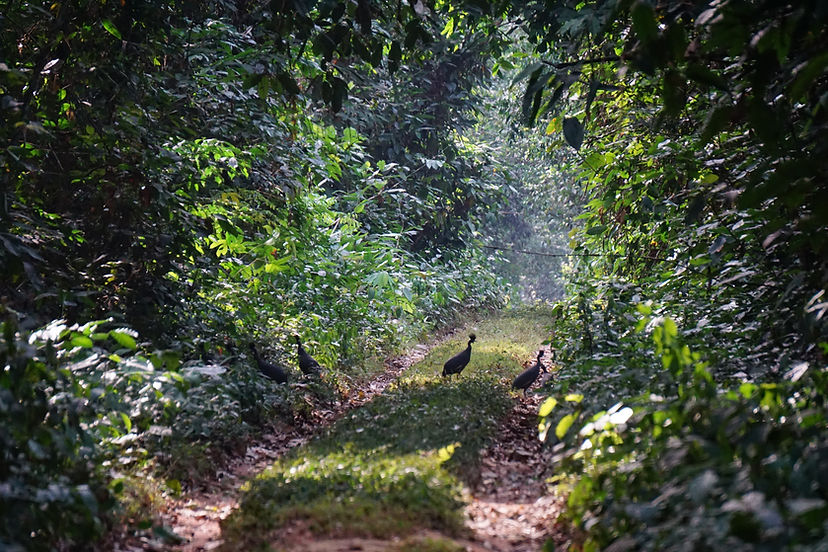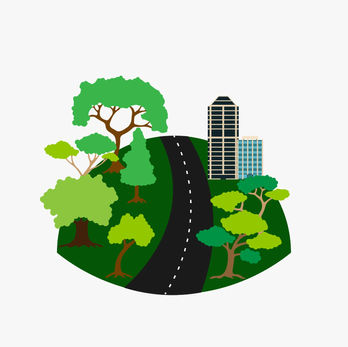
Our Priorities

The Forest Collective develops and supports projects that aim to conserve tropical forest ecosystems and threatened species.
Why Tropical Forests?
Despite covering only 7% of the Earth’s land area, tropical forests are home to at least half of the world’s species. Over 1 billion people also rely on tropical forests for their well-being. These ecosystems are culturally important and provide people with food, medicine, timber, and fuel.
Tropical forests regulate local and global climate, provide clean drinking water, and mitigate the impacts of flooding, hurricanes, erosion, and human-induced climate change. In other words, conserving and restoring tropical forests is critical for addressing the climate crisis, reversing declining trends in animal populations and averting species extinctions, and safeguarding the livelihoods of people.

Tropical forests are home to people and wildlife
Where we work
Currently, our projects are located in the African tropical forest zone, including the Congo Basin, Gulf of Guinea, Upper Guinean forests of West Africa, and East African forests. We work in old growth forests, degraded forests, secondary forests, agroforests, and forested wetland ecosystems. A degraded forest is one that, as a result of human activities, has begun to experience a reduced capacity to function properly as it loses trees and other native vegetation and as populations of animal species decline.
We recognize that “degraded” is a subjective, value-laden term and that forests can be characterized by degrees of degradation. A degraded forest can still have important conservation value warranting its protection and restoration. We do not recognize industrial tree plantations as forests but we do support the conservation of forests surrounding such plantations.
Check out the map to see where we have initiated and supported conservation activities.

Forest loss and Degradation
Forests are lost or degraded (when they begin to lose the capacity to function properly as they lose trees or populations of animal species decline). In the African tropical forest zone, species and ecosystems are threatened by a number of human activities.
Hunting
Unsustainable hunting also leads to declines of animal populations, local and global extinction, and loss of ecosystem functioning, contributing to forest degradation. People hunt animals for a variety of reasons in the African tropical forest zone. They hunt animals to obtain meat, to make medicines from animal parts, to keep animals as pets, and for cultural reasons. Hunting can quickly become unsustainable for many animal species, especially when it is done to supply a local, regional, or international commercial market, which is common in many parts of the African tropical forest zone.


Our projects are curated for the most threatened animal species, categorized by the IUCN Red List of Threatened Species as Vulnerable, Endangered, and Critically Endangered.
The Red List is a system informed by experts and used by scientists, conservation practitioners, and governments to evaluate the extinction risk of plant and animal species.










